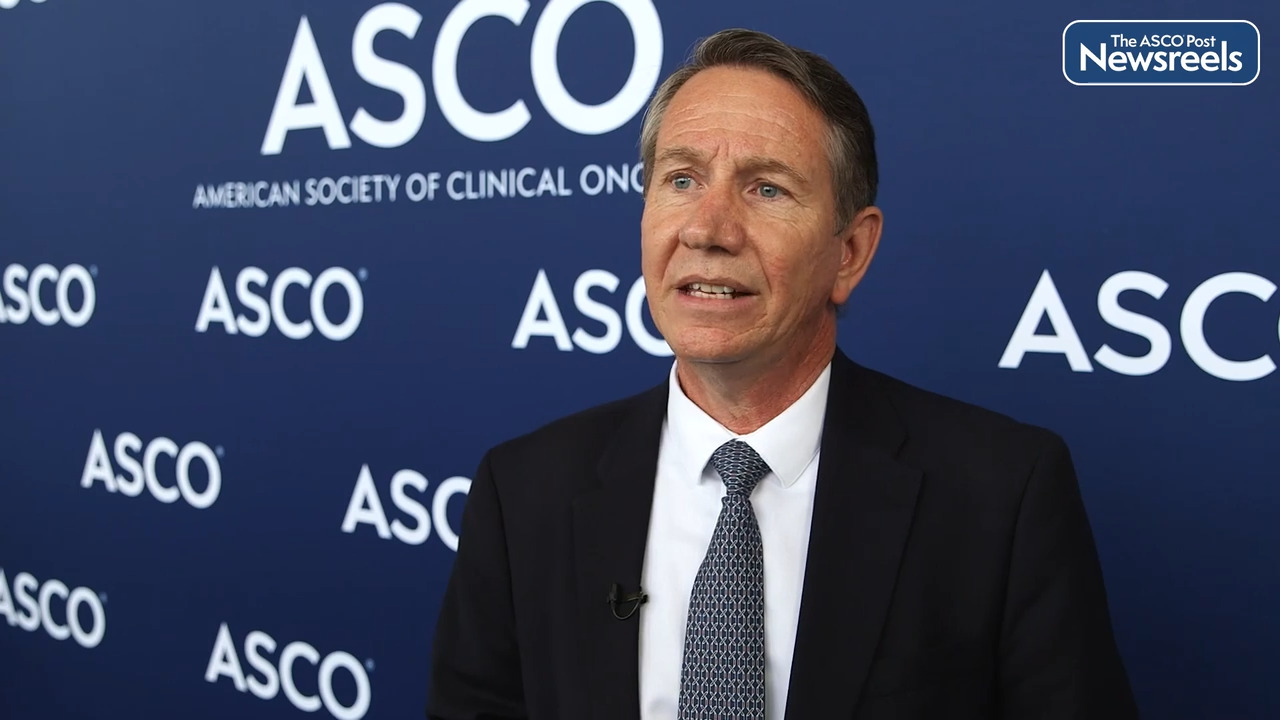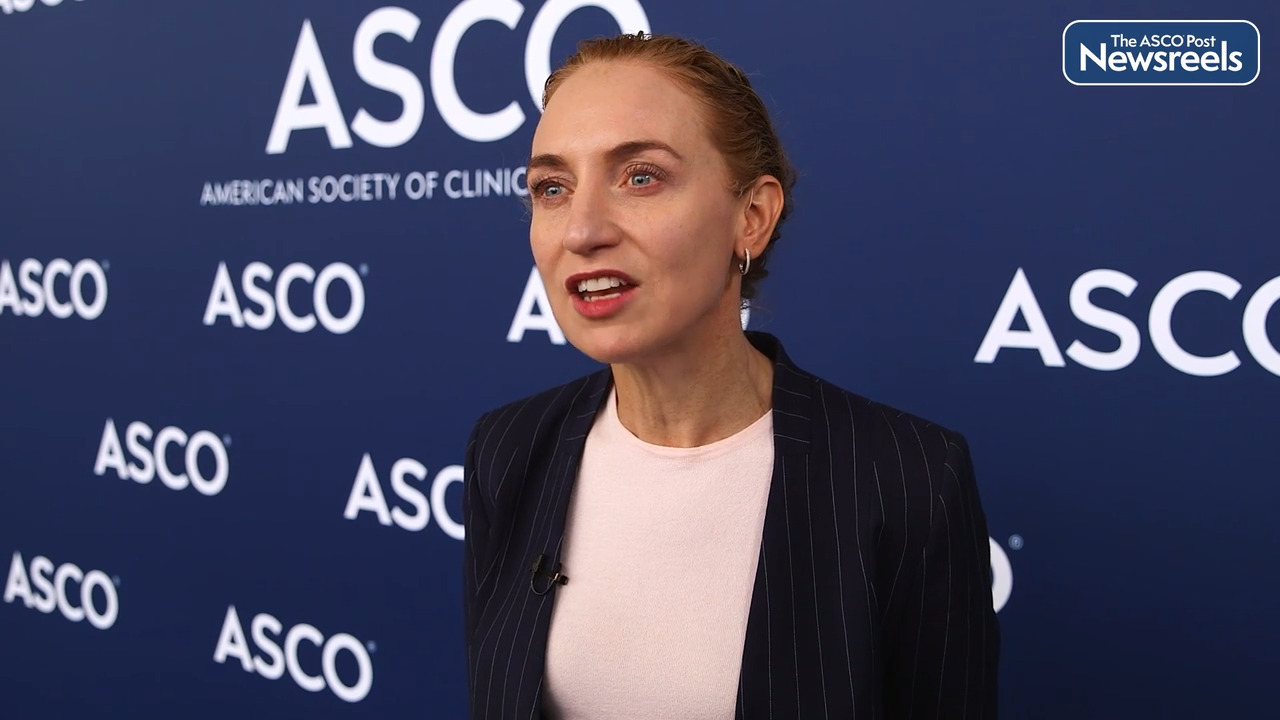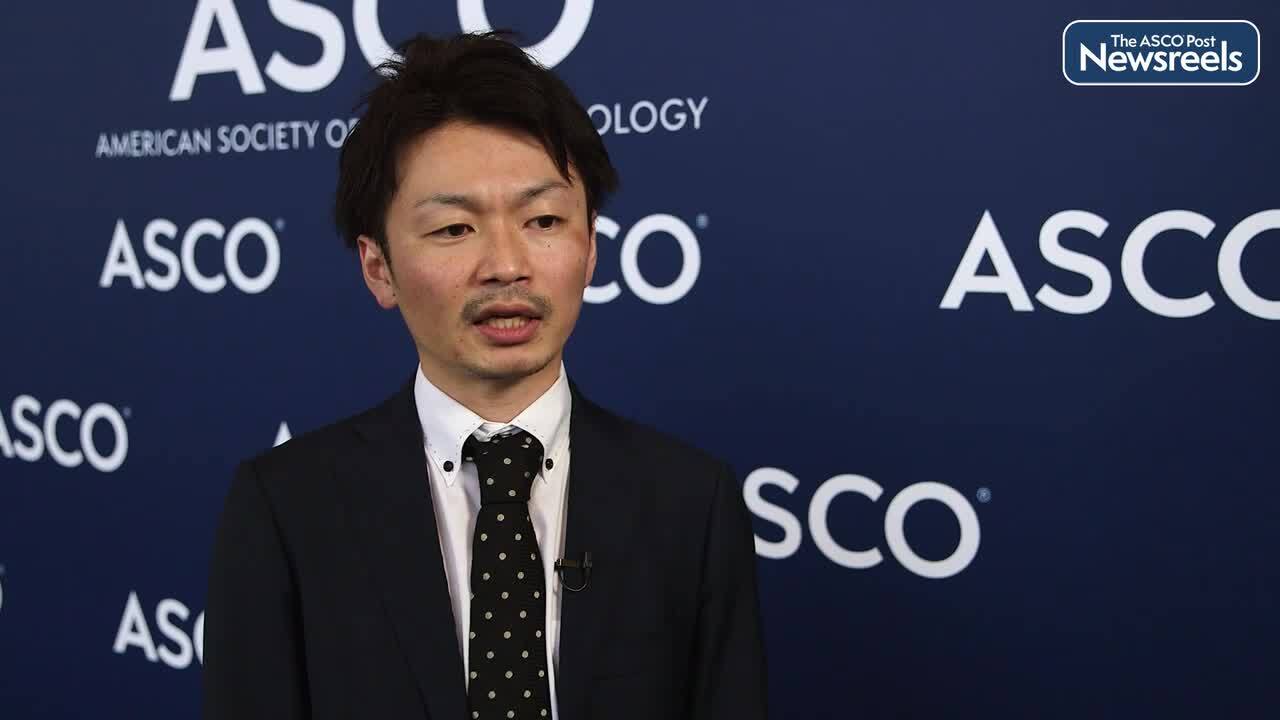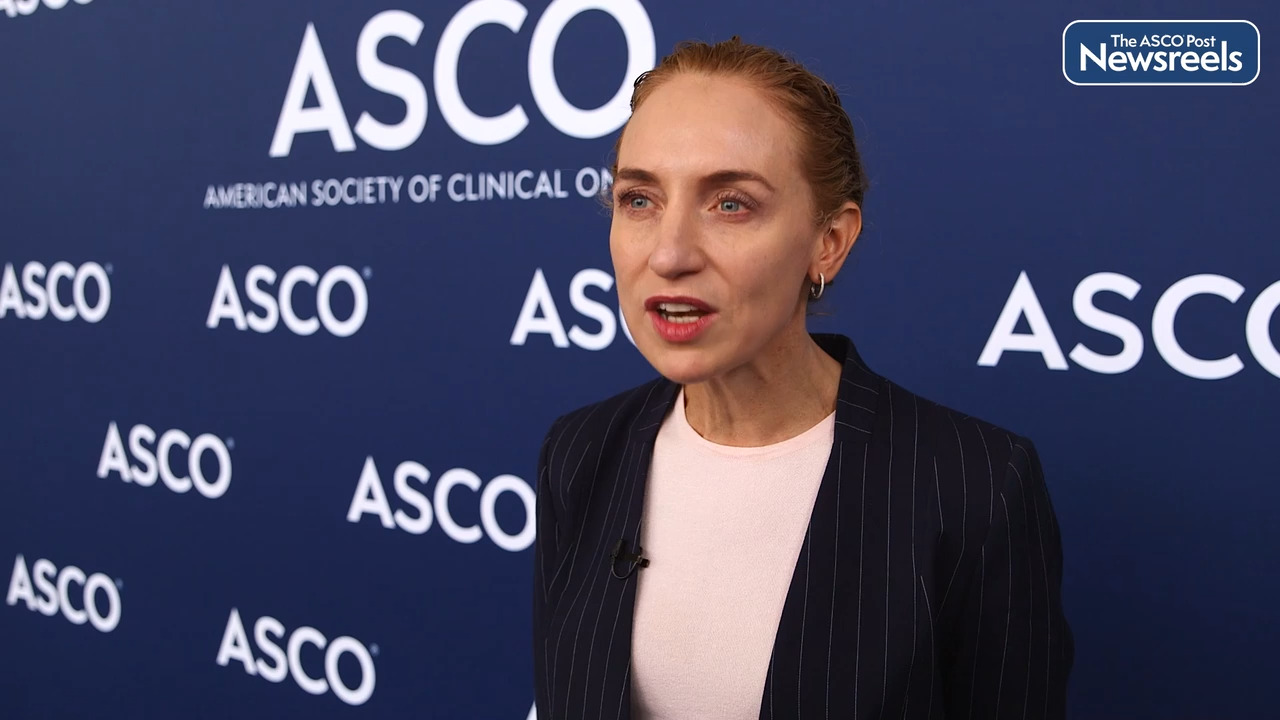Shilpa Gupta, MD, on Urothelial Cancer: Defining Who Is 'Platinum-Ineligible'
2022 ASCO Annual Meeting
Shilpa Gupta, MD, of the Cleveland Clinic Foundation, discusses an updated consensus definition for standard therapy and clinical trial eligibility for patients with metastatic urothelial cancer who are platinum-ineligible, criteria that are proposed to guide treatment recommendations for this population. This may be especially important now that the U.S. Food and Drug Administration has restricted the use of first-line pembrolizumab to those who are considered platinum-ineligible (Abstract 4577).
Transcript
Disclaimer: This video transcript has not been proofread or edited and may contain errors.
Frontline therapy for patients with metastatic urothelial cancer who are Cisplatin ineligible has continued to evolve. And the current standard of care is Gemcitabine and Carboplatin chemotherapy followed by durvalumab maintenance. In 2017, Atezolizumab and Pembrolizumab were approved as single agents for this patient population. But then the label was restricted to patients who are Cisplatin ineligible with high PD-L1 expressing tumors, or those who are not eligible for any platinum. And now Pembrolizumab use is only restricted to patients who are platinum-ineligible. Back in 2019, we presented results from our survey for defining platinum-ineligibility by sending a survey out to around 60 US-based medical oncologists. And we presented a consensus definition at GU ASCO that year. And now with the changing landscape, we updated the survey and used the similar cohort of responders to provide a consensus definition update. So we ask questions like: what equal performance status would physicians use to deem someone platinum-ineligible? What creatinine clearance cutoff would they use? What peripheral neuropathy cutoff, heart failure, cutoff? And in any person with ECOG performance status two, what would be the creatinine clearance cutoff? And based on the majority of responses, we found that most physicians found that creatinine clearance less than 30 milliliters per minute, peripheral neuropathy greater than are equal to grade two, significant heart failure that is NYHA class three or higher, equal performance status greater than our equal to three, and in a patient with equal performance status two, creatinine clearance of less than 30 milliliters per minute. Those were the factors that would make them hesitant to use Carboplatin. So we proposed that if any one of these criteria are met, that patient can be deemed as platinum-ineligible and be a candidate for single agent immunotherapy. Otherwise, we offered Gemcitabine and Carboplatin followed by durvalumab maintenance. Notably age was not a cutoff for these patients based on our survey.
The ASCO Post Staff
Stephen M. Ansell, PhD, MD, of Mayo Clinic, discusses updated data from the ECHELON-1 trial, which showed that, when administered to patients with stage III or IV classical Hodgkin lymphoma, the combination of brentuximab vedotin, doxorubicin, vinblastine, and dacarbazine (A+AVD) vs doxorubicin, bleomycin, vinblastine, and dacarbazine resulted in a 41% reduction in the risk of death. These outcomes, says Dr. Ansell, confirm A+AVD as a preferred option for previously untreated disease (Abstract 7503).
The ASCO Post Staff
Georgina V. Long, MD, PhD, of the Melanoma Institute Australia, The University of Sydney, discusses phase III findings from the KEYNOTE-716 study. The trial showed that compared with placebo, adjuvant pembrolizumab significantly improved distant metastasis–free survival in patients with resected stage IIB and IIC melanoma. The findings also suggest a continued reduction in the risk of recurrence and a favorable benefit-risk profile (Abstract LBA9500).
The ASCO Post Staff
Akihiro Ohba, MD, of Japan’s National Cancer Center Hospital, discusses phase II data from the HERB trial on fam-trastuzumab deruxtecan-nxki, which showed activity in patients with HER2-expressing unresectable or recurrent biliary tract cancer (Abstract 4006).
The ASCO Post Staff
Nancy Davidson, MD, of the Fred Hutchinson Cancer Research Center, reviews results from four abstracts about the importance of long-term follow-up in studies of adjuvant endocrine therapy for hormone receptor–positive breast cancer. Because the natural history of hormone receptor–positive breast cancer is long, an effort is underway to improve selection of patients by clinical parameters or biomarkers, refine the endocrine therapy background, and administer more effective combinations of endocrine therapy with other agents.
The ASCO Post Staff
Georgina V. Long, MD, PhD, of the Melanoma Institute Australia, The University of Sydney, discusses findings from the NeoTrio trial on neoadjuvant pembrolizumab alone, in sequence with, or concurrent with dabrafenib plus trametinib in patients with resectable BRAF-mutant stage III melanoma. The study may help clinicians determine the optimal combination of therapy (Abstract 9503).





